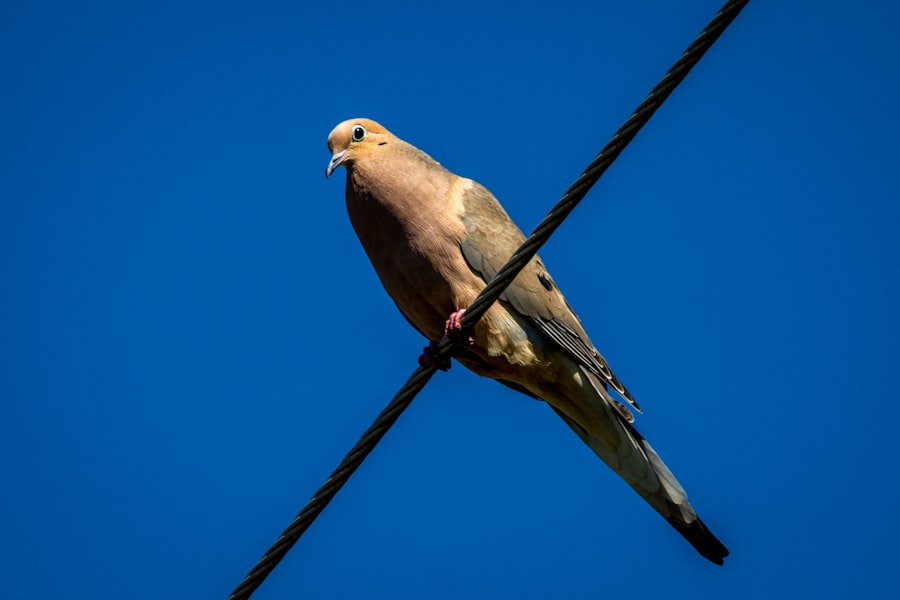Chicken keeping in Connecticut has experienced a surge in popularity in recent years, driven by a growing interest in sustainable living and self-sufficiency. This practice is viable in both rural and suburban settings, offering multiple benefits to homeowners. Chickens provide a reliable source of fresh eggs, assist in pest control, contribute to soil fertilization, and can serve as engaging pets.
However, prospective chicken keepers must familiarize themselves with Connecticut’s specific regulations and laws governing poultry ownership. Understanding and adhering to these guidelines is crucial to avoid potential legal issues, including fines or penalties. Before embarking on chicken keeping, it is essential to research and comply with local ordinances, zoning regulations, and state laws to ensure a smooth and lawful experience.
Table of Contents
- 1 Regulations and Laws Regarding Keeping Chickens in Connecticut
- 2 Types of Fines for Violating Chicken-Keeping Regulations in Connecticut
- 3 Steps to Take to Avoid Fines for Keeping Chickens in Connecticut
- 4 Benefits of Keeping Chickens in Connecticut
- 5 Resources and Support for Chicken Keepers in Connecticut
- 6 Conclusion and Final Thoughts on Keeping Chickens in Connecticut
- 7 FAQs
Key Takeaways
- Keeping chickens in Connecticut can be a rewarding and enjoyable experience for many residents.
- There are specific regulations and laws in place regarding keeping chickens in Connecticut, including zoning and permit requirements.
- Violating chicken-keeping regulations in Connecticut can result in fines, which vary depending on the specific violation.
- To avoid fines for keeping chickens in Connecticut, it is important to familiarize oneself with the regulations, obtain necessary permits, and maintain a clean and safe environment for the chickens.
- Keeping chickens in Connecticut can provide benefits such as a sustainable source of fresh eggs, natural pest control, and a connection to nature.
Regulations and Laws Regarding Keeping Chickens in Connecticut
Understanding Local Regulations
Connecticut has specific regulations and laws in place for keeping chickens, which vary depending on the town or city you reside in. Generally, most towns have ordinances that dictate the number of chickens allowed, coop requirements, setback distances from property lines and neighboring homes, and rules regarding the disposal of chicken waste.
Researching Local Zoning Regulations
It’s important to research and familiarize yourself with the local zoning regulations and ordinances that pertain to keeping chickens in your area.
Additional Restrictions and Considerations
Some towns may require a permit or license to keep chickens, while others may have restrictions on roosters due to noise concerns. Additionally, some neighborhoods may have homeowners’ association rules that further regulate chicken keeping.
Compliance and Avoiding Conflicts
It’s crucial to adhere to these regulations to avoid potential fines and conflicts with neighbors.
Types of Fines for Violating Chicken-Keeping Regulations in Connecticut
Violating chicken-keeping regulations in Connecticut can result in various types of fines and penalties, depending on the specific ordinance or law that has been violated. Common fines may include monetary penalties for exceeding the allowable number of chickens, not maintaining a clean and sanitary coop, or not obtaining the necessary permits or licenses. In some cases, fines may escalate if the violations are not addressed within a certain timeframe.
Additionally, there may be legal repercussions if noise complaints are filed due to roosters being kept in violation of local ordinances. It’s important to be aware of the potential fines and penalties associated with violating chicken-keeping regulations in Connecticut to avoid any legal issues and financial burdens.
Steps to Take to Avoid Fines for Keeping Chickens in Connecticut
To avoid fines for keeping chickens in Connecticut, there are several proactive steps that can be taken to ensure compliance with local regulations and laws. First and foremost, research and familiarize yourself with the specific ordinances and zoning regulations that pertain to keeping chickens in your area. This includes understanding the allowable number of chickens, coop requirements, setback distances, and any permit or licensing requirements.
It’s also important to maintain a clean and well-kept coop, as neglecting the cleanliness of the coop can lead to fines for violating health and sanitation regulations. Additionally, being a considerate neighbor by addressing any noise concerns related to roosters can help prevent potential fines and conflicts. By staying informed and proactive, you can minimize the risk of facing fines for keeping chickens in Connecticut.
Furthermore, establishing open communication with neighbors can help address any concerns they may have about your chicken-keeping activities. Being transparent about your intentions and addressing any potential issues upfront can foster positive relationships with neighbors and mitigate the risk of complaints that could lead to fines. Additionally, joining local poultry or homesteading groups can provide valuable support and resources for navigating the regulations and laws related to keeping chickens in Connecticut.
These groups often have experienced members who can offer guidance and advice based on their own experiences with chicken keeping in the area.
Benefits of Keeping Chickens in Connecticut
Despite the regulations and potential fines associated with keeping chickens in Connecticut, there are numerous benefits to raising chickens that make it a worthwhile endeavor. One of the primary benefits is having a sustainable source of fresh eggs that are free from hormones and antibiotics. This can contribute to a healthier diet for you and your family.
Additionally, chickens are natural pest controllers, as they consume insects and pests that can damage gardens and crops. Their waste also serves as a valuable source of fertilizer for gardens and landscaping. Furthermore, raising chickens can be a rewarding experience for both adults and children, providing opportunities for learning about animal care, responsibility, and self-sufficiency.
Moreover, chickens can also serve as entertaining and therapeutic pets, as they have unique personalities and behaviors that can be enjoyable to observe. The act of caring for chickens can also promote a sense of connection to nature and the food production process, fostering a greater appreciation for where food comes from. Overall, the benefits of keeping chickens in Connecticut extend beyond just the practical advantages of fresh eggs and pest control, enriching the lives of those who choose to embark on this rewarding endeavor.
Resources and Support for Chicken Keepers in Connecticut

Local Expertise and Guidance
For those interested in keeping chickens in Connecticut, local agricultural extension offices can offer valuable information on poultry care, coop design, and legal requirements for keeping chickens in specific areas. Additionally, joining poultry or homesteading groups can connect you with experienced chicken keepers who can offer practical advice and support based on their own experiences.
These groups often organize workshops, seminars, and events focused on poultry care and sustainable living practices. Furthermore, there are online forums and social media groups dedicated to chicken keeping where members can ask questions, share experiences, and seek advice from a community of like-minded individuals. These platforms can be valuable sources of information for navigating the regulations and laws related to keeping chickens in Connecticut.
Local Feed Stores and Farm Supply Stores
Additionally, local feed stores and farm supply stores often have knowledgeable staff who can provide guidance on poultry care, feed options, and coop supplies. By tapping into these resources and support networks, aspiring chicken keepers can gain the knowledge and confidence needed to successfully navigate the regulations and laws associated with keeping chickens in Connecticut.
Conclusion and Final Thoughts on Keeping Chickens in Connecticut
In conclusion, keeping chickens in Connecticut can be a fulfilling and rewarding experience that offers numerous benefits, from a sustainable source of fresh eggs to natural pest control and educational opportunities for both children and adults. However, it’s essential to be aware of the regulations and laws governing chicken keeping in your specific area to avoid potential fines and legal issues. By taking proactive steps to understand and comply with local ordinances, maintaining a clean coop, addressing noise concerns with neighbors, and seeking support from resources and networks, aspiring chicken keepers can navigate the regulatory landscape with confidence.
Ultimately, the joy of raising chickens and the sense of self-sufficiency it brings can outweigh the challenges of adhering to regulations. With proper knowledge, preparation, and support, keeping chickens in Connecticut can be a fulfilling endeavor that contributes to a more sustainable lifestyle and a deeper connection to food production and nature.
If you’re considering keeping chickens in Connecticut, you may also be interested in learning about the incubation period for goose eggs. Poultry Wizard has a helpful article on this topic that you can read here. Understanding the incubation period is important if you plan on breeding geese alongside your chickens.
FAQs
What are the regulations for keeping chickens in CT?
In Connecticut, regulations for keeping chickens vary by town and city. It is important to check with local zoning ordinances and animal control regulations to ensure compliance.
What are the common regulations for keeping chickens in CT?
Common regulations for keeping chickens in Connecticut may include restrictions on the number of chickens allowed, coop and run requirements, setback distances from property lines and neighboring homes, and rules regarding noise and waste management.
What are the potential fines for keeping chickens in violation of regulations in CT?
Fines for keeping chickens in violation of regulations in Connecticut can vary depending on the specific ordinance and the severity of the violation. Fines may range from a warning for first-time offenders to monetary penalties for repeat violations.
How can I find out the regulations for keeping chickens in my town in CT?
To find out the regulations for keeping chickens in your town in Connecticut, you can contact your local zoning department, animal control office, or town hall. Many towns also have their ordinances and regulations available online for easy access.
Meet Walter, the feathered-friend fanatic of Florida! Nestled in the sunshine state, Walter struts through life with his feathered companions, clucking his way to happiness. With a coop that’s fancier than a five-star hotel, he’s the Don Juan of the chicken world. When he’s not teaching his hens to do the cha-cha, you’ll find him in a heated debate with his prized rooster, Sir Clucks-a-Lot. Walter’s poultry passion is no yolk; he’s the sunny-side-up guy you never knew you needed in your flock of friends!







